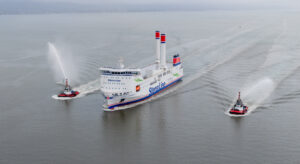Manchester City Council has laid out a new active travel strategy to realise net zero ambitions for 2038 and improve public health.
Aims include doubling the share of people cycling by 2028 and making walking the ‘natural choice’ for short journeys.
Other ambitions include:
- Reducing default speed limits in the city to 20mph and reduce 40mph speed limits to 30mph by 2028 in justifiable areas
- To deliver one school street per ward by 2028
- Allowing 70% of primary school and 40% of high school pupils to walk or cycle to school by 2028
- Making walking and cycling paths more accessible to people with disabilities and non-standard bikes by 2024
- Creating an inclusive and accessible Active Travel network
The council is hoping to improve access to the city centre, parks and key destinations, enabling safe access to schools and colleges and improving public health and wellbeing.
The new strategy is also focused on reflecting the diversity of Manchester citizens and addressing transport inequalities by engaging with marginalised groups and linking areas of higher deprivation to key destinations.
According to council data, most people walk journeys under 2km in Manchester, with 59% of journeys being made this way, while cycling makes up 6% of all journeys in the city.
Cllr Tracey Rawlins, Executive Member for Environment and Transport said: ‘Active Travel is one of the most important policies in recent memory that Manchester City Council has proposed.
‘We know how important it will be in not only creating a greener and less polluted city – contributing to our goal of becoming zero carbon by 2038 or earlier – but in shaping our neighbourhoods to become more vibrant and safer, as well as improving health across generations.’
Rawlins also pointed out the role of active travel in improving school safety and stated the council’s aims to make walking, wheeling and cycling routes accessible and inclusive.
In correspondence with residents, 64% said the speed and volume of traffic was the most significant barrier to them wheeling, walking or cycling. 53% also said busy roads and junctions put them off and 42% said the poor physical condition of pavements was a barrier.
She continued: ‘Our city is for everyone to enjoy and it is crucial that no one is left behind for any reason. We must work tirelessly to identify barriers that get in the way of active travel ensure that Active Travel works for everyone.’
Photo by Jeffrey Grospe
















